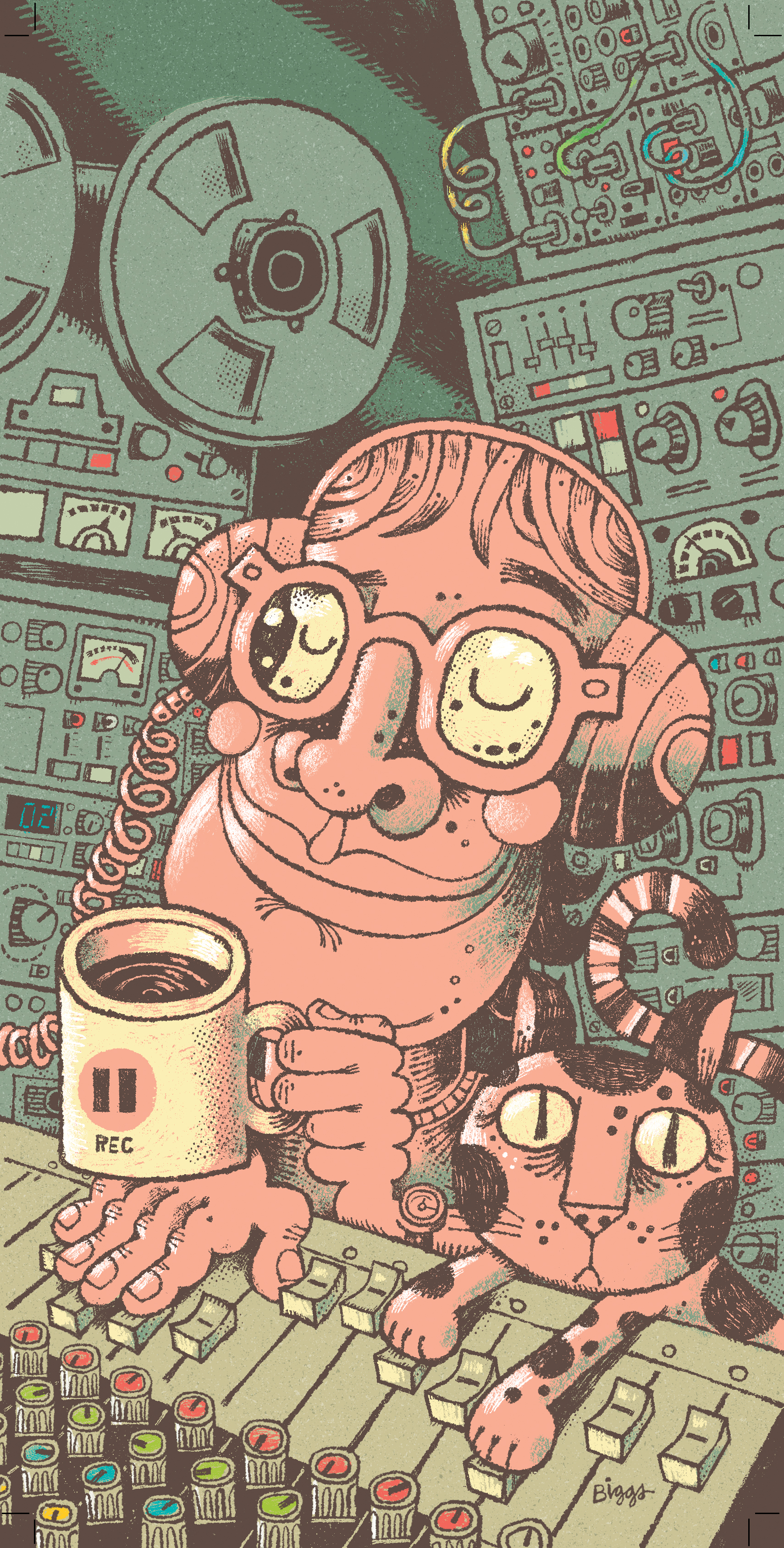I’ve come to the conclusion that recording studios don’t really make money. I’m not about to discuss the actual numbers of what my place, Jackpot! Recording Studio, brings in and spends, but after almost three decades the truth is that owning a studio can feel a bit like performing a public service at times. I’m providing a place for others to make records while basically just covering the studio’s bills. And I’m completely okay with that.
I love that Jackpot! is a wonderful place to work out of. There’s a wide selection of quality recording gear, instruments, microphones, and more. The better all this is, the easier the work becomes and the results gain a higher quality. If I was to rent a different comparable studio when taking projects it would cut into my income, so I’m happy to have a place to work out of. I also love that other engineers, producers, and mixers get to use the space, as I can’t possibly be in there working every single day like I used to when it first opened. Tape Op Magazine takes up more of my time than it did back then – it was quarterly and there was no online content or social media to deal with! These days, I spend more time editing, writing, managing, and overseeing content for Tape Op, but now I also make part of my living from the magazine.
Diversified income is probably the smartest thing someone can do that owns and runs a studio. One old-school model was that producers who owned recording studios would also have a “production company,” record label, A&R gig, or such in place. In effect, this is a way of offering up studio time for artists who the owner sees potential in. The production company can bill the studio for time, and generally not pay up front. Then the artist can be sold or licensed to a bigger label, or a deal can remain that gives the production company some cut of their earnings, and then the studio gets paid. All sorts of differing deals can be worked out in this manner, and if it is run well, or the owner is lucky, then some extra money can be made. Diversification.
I never ran Jackpot! in this manner. Maybe to my detriment? I also (foolishly?) never asked for points.* On anything. Ever. People have talked to me assuming that Elliott Smith’s Oscar-nominated song, “Miss Misery,” made me lots of money. I was never even paid for the recording time, and my “co-producer” credit is simply a nice gesture from Elliott. Do I care about all this? Not really. Working with Elliott Smith only enriched my career. Instead of me speculating on other people’s careers, my jobs all simply pay me for the work done. When I’m on a session or mixing a song, I feel well compensated for my work. I’m happy, and I live a comfortable-enough, decent life even if it’s a little “month-to-month” financially. The studio’s landlords are friends, and they make this whole business doable. I don’t get insanely huge rent increases every year, and we can have honest conversations about everything here. I am lucky.
Yeah, owning a studio might not be the most lucrative business one could get into. But I love that there’s a place in Portland where people can get quality recordings done, and I’m proud that it’s something I was able to put in motion way back. And when I go in there and get to work on great music, it’s one of my favorite places in the world.


.jpeg)
.jpeg)